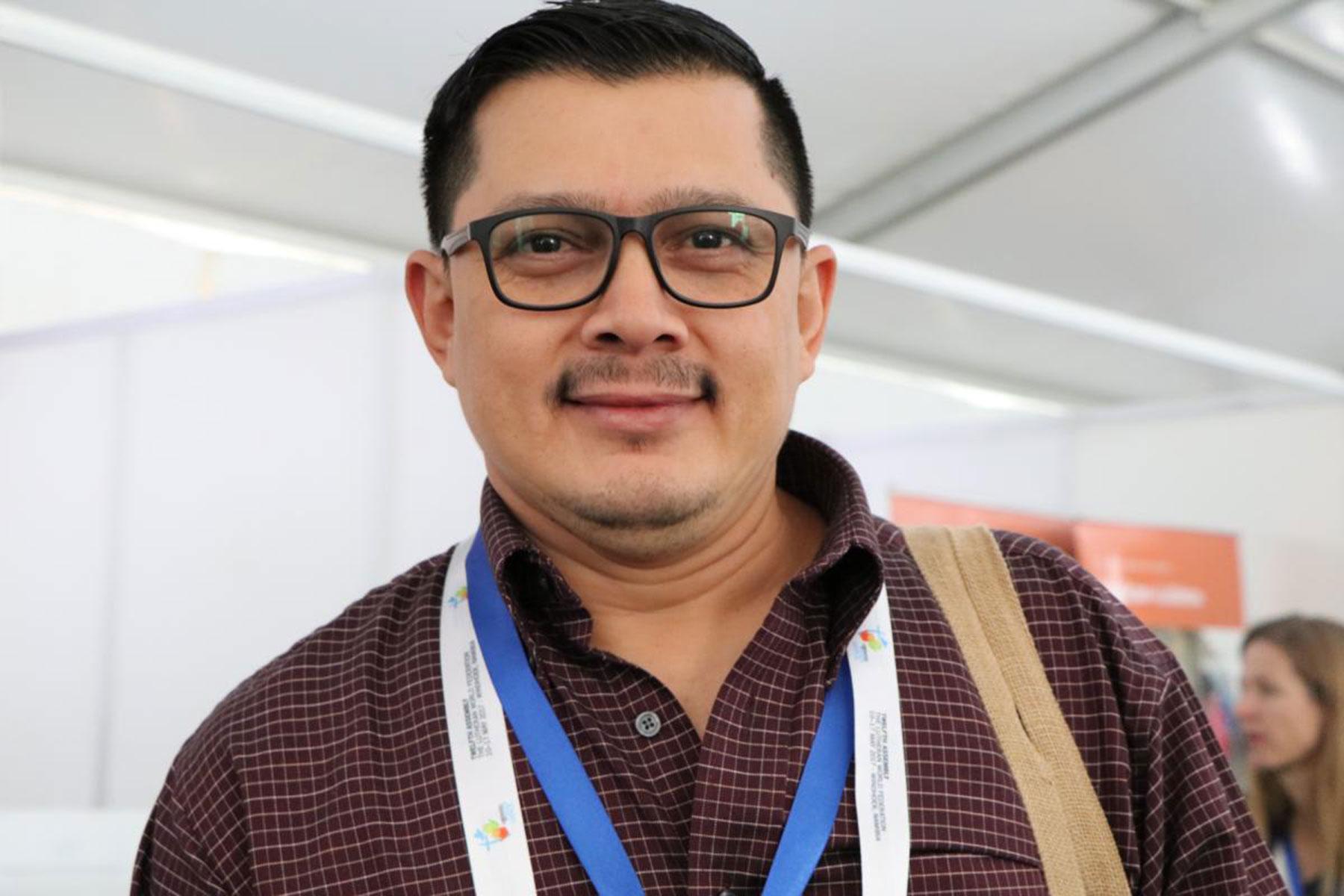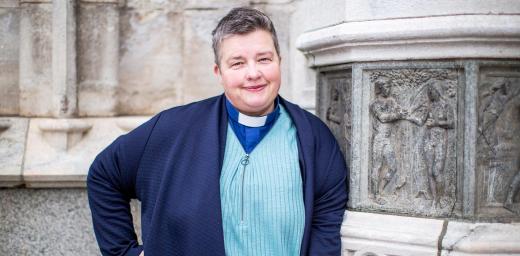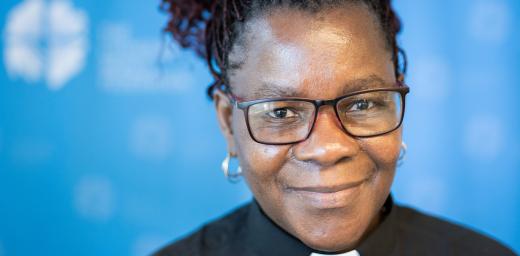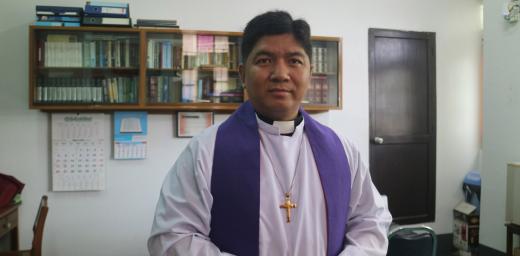Honduras: "We go without fear, we bless them”

The Christian Lutheran Church of Honduras President Pastor Rev. Julio Cabellero. Photo: LWF
Voices from the Communion: Pastor President Julio Caballero of the Christian Lutheran Church of Honduras
(LWI) - On 10 April this year, the Christian Lutheran Church of Honduras (ICLH) elected Julio César Cabellero as its new Pastor President. The election should have been held in 2020, but was postponed due to the Coronavirus (COVID-19) pandemic.
In this Voices from the Communion interview, ICLH Pastor President Julio Cabellero talks about the challenges the pandemic continues to present for his church in addition to the ongoing crisis of violence, unemployment and injustice in his country. He describes how he continues to guide ICLH leaders into the darkest places in Honduras to be the light of Christ.
Tell us about Honduras and the realities for the people there?
Honduras is a very beautiful and wonderful country with great landscapes and a rich history; a country with a tropical climate. Honduras celebrated 200 years of independence and the bicentennial of Central American countries and Mexico were recently commemorated. However, the current situation in this country is quite difficult due to injustice and corruption and now more than ever with the pandemic. General elections for a new national president will be on 28 November, but the people do not know which candidate to choose. They feel like they have to compromise, that no candidate is the best. That is why we say that there is no independence, there is no freedom because we are limited in what we can express, what we think and what we want to say.
What challenges does your community and the church face in such a difficult context?
Honduran men and women are being forced to emigrate entire families. This is a great challenge for the church because our faith communities are right there at the point of need. Where there is violence, where there is drug trafficking, where there is murder, where there is danger, there also is the church trying to bring hope, trying to announce a new path and also accompanying the people and denouncing when the rights of those people are violated. The rights of women, children and young people are the most at risk. Corruption is destroying the people worse than the COVID-19 pandemic.
The people have been forced into different economic categories. The one who was rich is now considered middle class. Eight out of every ten Hondurans are unemployed, with no jobs the resource of food becomes scarce – many go to bed hungry. Some farm but are only receiving cash for their crops once a month and that allows their family to eat, not the three times a day, but at least once a day. Institutions like Bread for the World provide some relief in remote villages.
Where are some of the hardest hit areas that the church serves?
The village of San Nicolás Department Olancho is where the Christian Lutheran Church of Honduras was established in 1951 and it is where we see some of the worst social and climate crisis. This year, the community has seen a drastic decrease in population because families are migrating to flee the violence. They are fleeing because of the lack of employment and because their land, that used to be fertile producing bounties of corn, beans and other types of grains, is no longer fertile due to global warming.
In the urban area the gangs, drug trafficking and hired murderers contribute to the deterioration of urban communities in the city of San Pedro Sula and in the capital of Honduras, Tegucigalpa, where the church is headquartered.
How does the church witness to the hungry and those living in violence?
Amid the difficulties of the crisis, we try to make a difference. We try to work with other churches in the country to speak out about the injustices and crimes, because if we remain silent today, we will suffer tomorrow. As the church we are exposed to criticisms, but churches are called to bring the Word of God which prepares our people to raise their voices. If not, then we are just as guilty of the atrocities.
Also, we go into the dark areas that are ravished by drugs and violence. Our pastors, laypeople and I go into those communities and see young boys armed with guns who belong to gangs. Yet, we go without fear, we greet them, and bless them. When our church goes into environments like these, we have entrusted ourselves to God, believing Psalm 23 “The Lord is my Shepherd.” This is what our pastors in San Pedro Sula, a particularly hard and violent area, experience.
We, the church, can be the light for families living in the darkest places. We believe that no one should be left abandoned in exile. We have to accompany them spiritually, we say to them, “I am here with you, but I don’t accompany you alone, God accompanies us.”
What does it mean for your church, your work, for you to be a part of the communion of churches?
It is a blessing to know that we have The Lutheran World Federation unifying us with dignity and accompanying us. I feel so fortunate to belong to a family of Protestants that knows we are free by the grace of God. Knowing that the relationship with the communion is there, that we are a part of a great family of diverse languages, from different contexts and with different socioeconomic means, yet we all belong to this great community of faith. The LWF has supported many of our leaders through education, allowing them to become theologians.
The communion is there to accompany us, to listen to us, ensuring us that we will not be forgotten.
By LWF/A.Gray and Rev. Eugenio Albrecht/LAC Communication Network
The Lutheran World Federation is a global body that shares the work and love of Christ in the world. In this series, we profile church leaders and staff as they discuss topical issues and set out ideas for building peace and justice in the world, ensuring the churches and communion grow in witness and strength.





